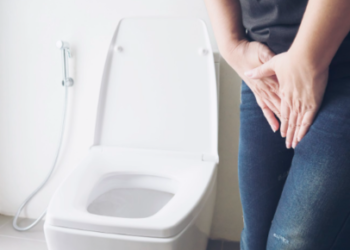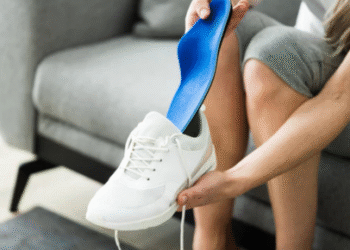1. Introduction to Mosquito Allergies
Mosquito allergies occur when the immune system overreacts to mosquito bites. Understanding mosquito allergy symptoms can help manage reactions and seek appropriate treatment. This article explores common symptoms, causes, and ways to alleviate discomfort.
2. What Causes Mosquito Allergies?
Mosquito allergies are caused by the proteins in mosquito saliva. When a mosquito bites, it injects saliva into the skin, which can trigger an allergic reaction in some people. The immune system’s response to these proteins results in various symptoms.
3. Common Symptoms of Mosquito Allergies
Common symptoms of mosquito allergies include redness, swelling, and itching at the bite site. These symptoms can vary in severity, from mild irritation to intense discomfort. Recognizing these signs helps in taking prompt action.
4. Local Reactions
Local reactions are confined to the bite area and include redness, swelling, and itching. These reactions are common and usually subside within a few hours to days. Applying soothing creams can help reduce symptoms.
5. Large Local Reactions
Some individuals experience large local reactions, characterized by significant swelling and redness that can extend beyond the bite site. These reactions can last several days and may require medical attention to manage discomfort.
6. Systemic Reactions
Systemic reactions are less common but more severe, affecting areas beyond the bite site. Symptoms may include hives, fever, and swollen lymph nodes. Systemic reactions require prompt medical attention.
7. Anaphylaxis: A Severe Reaction
Anaphylaxis is a rare but severe allergic reaction that can be life-threatening. Symptoms include difficulty breathing, swelling of the throat, and a drop in blood pressure. Immediate medical intervention is crucial for anaphylaxis.
8. Itching and Redness
Itching and redness are the most common symptoms of mosquito allergies. The itching can be intense and persistent, leading to discomfort and potential skin damage from scratching. Topical treatments can help alleviate these symptoms.
9. Swelling and Inflammation
Swelling and inflammation occur as the body’s immune response to mosquito saliva. This can result in noticeable swelling at the bite site, which may be painful and warm to the touch. Cold compresses can help reduce swelling.
10. Blisters and Rashes
In some cases, mosquito bites can lead to blisters and rashes. These symptoms indicate a more severe allergic reaction and may require treatment with antihistamines or corticosteroid creams to reduce inflammation.
11. Fever and Fatigue
Fever and fatigue can occur as part of a systemic reaction to mosquito bites. These symptoms suggest a more significant immune response and may accompany other signs such as swollen lymph nodes and widespread hives.
12. Allergic Contact Dermatitis
Allergic contact dermatitis is a delayed skin reaction that can occur after a mosquito bite. Symptoms include redness, itching, and blistering that appear several hours to days after the initial bite. Treatment involves managing symptoms and avoiding scratching.
13. Breathing Difficulties
Breathing difficulties are a serious symptom of anaphylaxis. Swelling in the throat and airways can restrict breathing, making it essential to seek emergency medical help immediately. Epinephrine injections are the first line of treatment.
14. Nausea and Vomiting
Nausea and vomiting can be part of a systemic allergic reaction to mosquito bites. These symptoms indicate a more severe reaction and require medical evaluation to ensure proper management and treatment.
15. Dizziness and Weakness
Dizziness and weakness are signs of a systemic reaction or anaphylaxis. These symptoms can indicate a drop in blood pressure and require immediate medical attention to prevent severe complications.
16. Swollen Lymph Nodes
Swollen lymph nodes may occur as the body fights the proteins in mosquito saliva. This symptom indicates an immune response and can accompany other systemic symptoms such as fever and widespread itching.
17. Hives and Welts
Hives and welts are raised, itchy areas of skin that can occur after a mosquito bite. These symptoms are part of an allergic reaction and can vary in size and severity. Antihistamines can help manage these symptoms.
18. Delayed Reactions
Delayed reactions to mosquito bites can occur hours to days after the initial bite. Symptoms include itching, redness, and swelling that develop over time. These reactions may require ongoing treatment to manage discomfort.
19. Treatment for Mosquito Allergy Symptoms
Treating mosquito allergy symptoms involves managing itching, swelling, and other reactions. Over-the-counter antihistamines, topical corticosteroids, and soothing creams can help alleviate symptoms. Severe reactions may require prescription medications.
20. Home Remedies for Relief
Home remedies can provide relief from mosquito allergy symptoms. Applying ice packs, aloe vera gel, or baking soda paste can reduce itching and swelling. Keeping the bite area clean helps prevent infection.
21. Preventing Mosquito Bites
Preventing mosquito bites is key to avoiding allergic reactions. Using insect repellent, wearing protective clothing, and using mosquito nets can reduce the risk of bites. Avoiding areas with high mosquito activity also helps.
22. When to See a Doctor
It’s important to see a doctor if you experience severe or systemic reactions to mosquito bites. Symptoms such as difficulty breathing, severe swelling, and widespread hives require medical evaluation and treatment.
23. Allergy Testing
Allergy testing can help identify if you have a specific allergy to mosquito saliva. Skin tests or blood tests can determine your sensitivity to mosquito bites and guide appropriate treatment plans.
24. Long-Term Management
Long-term management of mosquito allergies involves avoiding bites and managing symptoms. Staying informed about prevention strategies and having medications on hand can help you effectively manage your condition.
25. Conclusion: Managing Mosquito Allergies
Managing mosquito allergies involves understanding symptoms, seeking appropriate treatment, and taking preventive measures. By staying informed and prepared, you can reduce the impact of mosquito bites and maintain a comfortable, allergy-free life.












